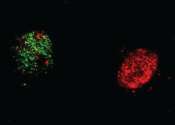How epigenetics influence memory formation
When we form a new memory, the brain undergoes physical and functional changes known collectively as a "memory trace." A memory trace represents the specific patterns of activity and structural modifications of neurons that ...
Jul 25, 2024
0
140









